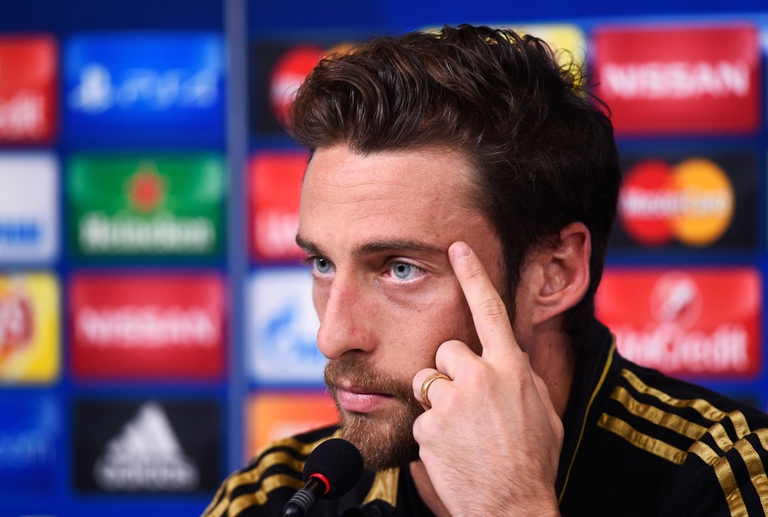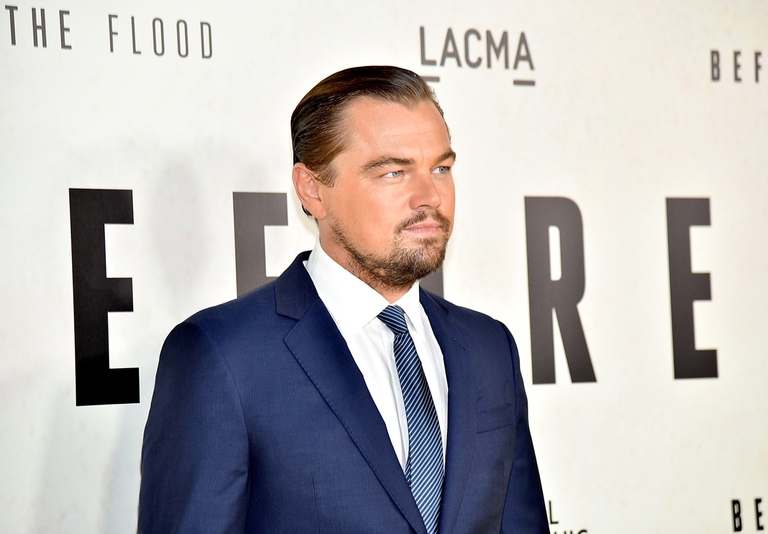
After a landslide led to twelve deaths on the island of Ischia, questions have been raised about the impacts of illegal building, tourism, and climate change.
Bandiera della Juventus, buon esempio per i tifosi. Claudio Marchisio fuori dal campo è una persona semplice, ma che non si tira indietro quando c’è da prendere posizione sulle sfide più importanti del nostro tempo: come i cambiamenti climatici.
A gentleman athlete, Marchisio has always been interested in social and environmental sustainability. Born in Turin, Italy in 1986 and a Juventus football player for over 20 years, he’s one of the most followed Italian players on social media (counting 1.8 million followers on Twitter), where he often publishes his opinions on issues from migration to climate change without fear of Internet “trolls” or “haters.” We spoke to him after a post that grabbed our attention, a simple but effective question: “Is it still possible to deny climate change?”
In the post you published on social media that drew our attention, you expressed the desire to bring the question of climate change “to the centre of political debate”. Why are you interested in this issue and why, in your opinion, is it so difficult to talk about the climate?
It’s simply a matter of conscience. Climate change is a tangible, violent phenomenon that has become part of our daily lives in every part of the world. There’s no time left: hurricanes Harvey and Irma, droughts, migratory waves, early harvests, rising sea levels, desertification and the progressive impoverishment of the soil are all consequences of climate change. They aren’t exceptional events be inserted historical record books, they’re the new normal. In order to reverse the trend, we must all play our part, but I also hope the issue will be given more adequate attention by public institutions.
Often when talking about the climate the number one enemy is fossil fuels. Instead you’ve tackled the issue from another perspective: food. What led you to connect climate change to food (therefore agriculture and factory farming)?
Let’s try to think about what is happening every day in our homes. TheUnited Nations’ Food and Agriculture Organisation (FAO) estimates that every European wastes 179 kilos of food each year, and food waste generates an enormous amount of greenhouse gases. Food is therefore a decisive factor in this situation and everyone can make a difference by changing their behaviour. By choosing local foods, eating less meat and avoiding meat that comes from intensive farming. Also, by asking ourselves a few simple questions: how is the food we consume produced? Where does it come from? How much energy and water are used to produce it?
Slow Food was founded in Piedmont, the Italian region you’re from. Is this the connection that led you to choose to support the Menu for Change campaign or is there something more?
Slow Food is an international organisation but one that has deep connections to where I’m from. Thanks to its work I believe there is greater awareness of good, clean and fair food. I have always admired Slow Food’s work because it has been able to create relationships and exchanges between people who live far away from one another and come from extremely different contexts. At the same time it has made people more aware of the fact that behind all the food we choose there is a story, so buying food must be experienced as an act of great importance and responsibility.
Every time we post something about actor Leonardo DiCaprio and his climate actions, our community recognises him as a perfect ambassador for the Earth. You seem have much in common with DiCaprio in terms of how you ca influence international public opinion. What reaction would you like to see from the Italian public regarding your commitment to a “healthy and just” world?
When I talk about or take a position on issues connected to current events I never worry about what the reaction of the public might be. In my daily life I’m simply Claudio, a guy with a beautiful family and that, like everyone, has opinions on the problems and challenges of the world. I always try to express my point of view in a determined but polite way, even if this doesn’t make me exempt from criticism. And if my media exposure can help raise awareness about the issues that I believe are important, then I can’t be anything but happy (even at the cost of receiving criticism).
Last question, but only because it would be strange not to ask it. Is the world of football doing enough to raise awareness about climate change among its millions of fans?
I think it could do more. Perhaps climate change is perceived as something far away, against which individual actions have no effect, but that isn’t true. Simple virtuous behaviour on everyone’s part (such as food choices) trigger crucial virtuous cycles. In this sense, the world of football could play an educational and awareness-raising role.
Siamo anche su WhatsApp. Segui il canale ufficiale LifeGate per restare aggiornata, aggiornato sulle ultime notizie e sulle nostre attività.
![]()
Quest'opera è distribuita con Licenza Creative Commons Attribuzione - Non commerciale - Non opere derivate 4.0 Internazionale.
After a landslide led to twelve deaths on the island of Ischia, questions have been raised about the impacts of illegal building, tourism, and climate change.
Not much snow, peaks of 19 degrees Celsius in Norway and even 28 degrees in France: official data confirms the anomalously high temperatures of this past winter.
Ocean warming has risen to record highs over the last five years: just in 2019 the heat released into the world’s oceans was equivalent to that of 5-6 atomic bombs per second. The culprit, no doubt, is climate change.
What did Greta Thunberg tell participants at the 2020 World Economic Forum in Davos? Once again, the Swedish activist underlined the total lack of concrete solutions to the climate crisis presented by leaders so far.
The list of human and animal victims of the Australia wildfires keeps growing – one species might already have gone extinct – as the smoke even reaches South America.
Kivalina is located on a small island once guarded by sea ice, which is now melting due to global warming. While the sea threatens to wipe the village off the face of the Earth, its inhabitants refuse to give up their lives and traditions.
Thanks to activists, the voice of the world’s peoples resounded through the COP25 like an alarm bell. Governments didn’t reach the results they demanded, but their cries and messages were stronger than ever, reaching even those who weren’t in Madrid.
Climate change poses a risk for millions. However, women are the most vulnerable to its negative consequences: a few simple considerations by the Italian Climate Network help us perceive the global implications of this.
The COP25 ended two days late and with very few steps ahead made. Climate negotiations in 2020 will be an uphill battle as political will clearly seems to be lacking, once again.









